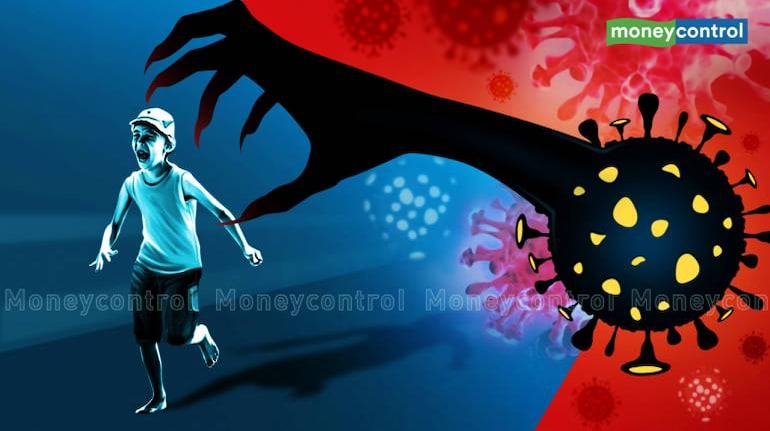



The Delta variant of the coronavrius continues to spread across the globe, forcing countries to impose nationwide as well as local lockdowns. According to the World Health Organization (WHO), the circulation of the Delta variant in areas of low vaccination is driving transmission of COVID-19 around the world.
The surge in new infections has prompted countries to impose region-specific and nationwide lockdown, depending on the number of active cases.
Here are the countries that have opted for lockdowns:
New Zealand
New Zealand extended a national COVID-19 lockdown on August 23, with Prime Minister Jacinda Ardern saying a Delta variant outbreak was yet to peak.
Ardern said the rapid spread of the highly transmissible variant meant it was too early to lift restrictions imposed the previous week after a virus cluster emerged in Auckland, ending a six-month run of no local cases.
New Zealand's lockdown was due to end August 24 but Ardern said it would continue through to August 27 nationwide and until the evening of August 31 in the capital Auckland.
Iran
Iran had last week tightened curbs to contain the spread of the virus. The six-day restrictive measures that ended on August 21 included the closure of government buildings, banks and non-essential shops. However, a nationwide ban on private car travel between provinces remains in force until August 27.
The country has since late June see what officials have called a "fifth wave" of infections, blamed mostly on the Delta variant. Daily deaths and infections have hit record highs several times this month.
Sri Lanka
Sri Lanka announced a nationwide lockdown on August 20 as infections overwhelmed hospitals, morgues and crematoriums.
President Gotabaya Rajapaksa agreed to a 10-day closure after dire warnings that hospitals could no longer cope with the inflow of Covid-19 patients.
"Nationwide lockdown in effect from 10pm today to Monday (30/08)," health minister Keheliya Rambukwella said on Twitter. "All essential services will function as normal. I sincerely request all #lka citizens to adhere to the law and #StayHome," he said.
Australia
Australia has imposed strict lockdown in two of its biggest cities Sydney and Melbourne. Sydney has been in lockdown for two months, while Melbourne and capital Canberra went into lockdown earlier this month.
People are mostly confined to their homes and have limits placed on their social interactions.
Sydney recently extended its two-month lockdown by another month and introduced a partial curfew. Stay-at-home orders will now remain in place across the city until the end of September and residents in virus hotspots will also be subject to a nighttime curfew and limited to one hour of outdoor exercise a day.
Japan
Much of Japan is in a “state of emergency” to curb COVID-19 infections. The emergency, which lasts through September 12, requests restaurants and bars to close at 8 pm and not serve alcohol, and shopping malls to limit crowd size.
The government decided last week to expand the emergency to 13 areas, up from six, including Tokyo and Okinawa. The quasi-emergency now covers 16 prefectures or areas, so about two-thirds of Japan is under some restrictive measure.
Vietnam
Vietnam's largest metropolis, Ho Chi Minh City, began a strict lockdown on August 23 to curb its worst coronavirus outbreak, a day before US Vice President Kamala Harris arrives in the country on a state visit.
People in high-risk districts are not allowed to leave home under the tight restrictions, which will remain in effect for at least two weeks.
The city has mobilised police and army troops to monitor the lockdown and to deliver food as other necessities to each household.
Ho Chi Minh City and Vietnam's entire southern region have been in lockdown since July, when the Delta variant started to spread quickly.
Public gatherings are banned, non-essential business closed and people are asked to only leave home to buy food or for urgent matters.
Jamaica
Jamaica has prohibited residents from leaving their homes for seven days spread over three weekends to contain an upsurge in coronavirus infections and shield its healthcare system.
The Caribbean nation has been battling a third wave of infections, with the presence of the highly contagious Delta variant confirmed on the island.
Jamaica started its restrictions on movement on August 22, with the first lockdown lasting three days.
There will be an identical three-day ban on movement the following weekend, and a one-day lockdown on Sunday, September 5.
Discover the latest Business News, Sensex, and Nifty updates. Obtain Personal Finance insights, tax queries, and expert opinions on Moneycontrol or download the Moneycontrol App to stay updated!
Find the best of Al News in one place, specially curated for you every weekend.
Stay on top of the latest tech trends and biggest startup news.